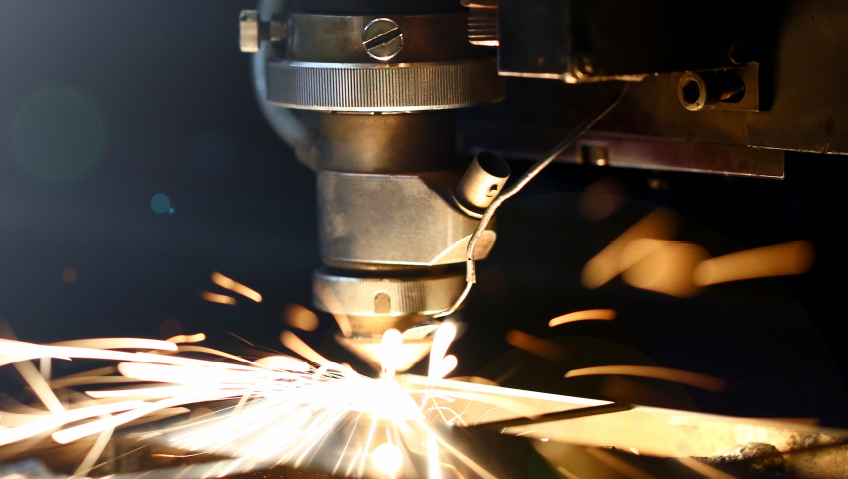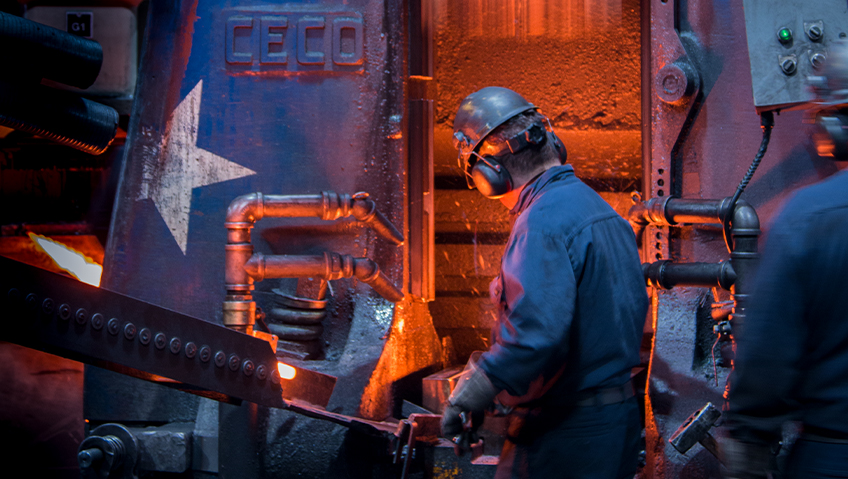The practice of lean manufacturing is one that has been in place across the world for over a century and has had a positive track-record across companies and industries reliant on manufacturing processes for both customer satisfaction and business success. The process may ultimately face obsolescence over time but, in tying together with a new focus towards automation and interconnectedness in business, it may find new life altogether.
Lean manufacturing (aka lean production or just-in-time manufacturing) is an approach to the manufacturing process that seeks to reduce production times within the system and response times in communications and delivery between both suppliers and customers. The idea is to increase efficiency by receiving goods only as needed for production, in turn lowering inventory costs as well as waste while increasing both productivity and profit.
The approach is nearly a century old as it was originally adopted from automotive company Toyota’s operating model established in the 1930’s, which focused on both continuous improvement and respect for the people involved in the process. The “lean” moniker was coined by John Krafcik, the CEO of driving technology company Waymo and further expanded into its five key principles by James Womack, now the founder of the Lean Enterprise Institute, and author and researcher Daniel Jones. These key principles are, “Precisely specify value by specific product, identify the value stream for each product, make value flow without interruptions, let customer pull value from the producer, pursue perfection.” It has since been adopted by businesses worldwide and continues to make its mark as an efficient and customer-friendly option.
Industry 4.0, or the Fourth Industrial Revolution, refers to the current and ongoing automation of traditional manufacturing and industrial practices using smart technology. This further ties into concepts like machine-to-machine communication (M2M) and the Internet of Things (IoT), concepts that have to do with the integration of technology to increase automation, improve communication and self-monitoring, and the production of smart machines that can operate without human assistance. These concepts focus on the interconnection that humans have with each other using machines, as well as the connections between these machines and the various attached devices and sensors.
As industry itself moves forward under these directions, future goals include the continued transparency of information, greater technical assistance, and the decentralization of decision-making allowing for automated systems to make decisions without human involvement. This fourth revolution follows likewise advancements in human and technological development, from the use of more complex machines to the invention of railroads, telegraph networks, and more rudimentary digital technologies that have given way to the bleeding edge technologies present in the workforce today.
There are a great many voices within the industry that seem to agree that the technological advancements in Industry 4.0 are easily and even inherently compatible with the goals of lean manufacturing. In a study published for the Journal of Industrial Engineering and Management (JIEM), Adam Sanders, Chola Elangeswaran, and Jens P. Wulfsberg explore the concept that robotic and automation technologies can in fact be employed to achieve lean manufacturing standards.
Industry 4.0 has the tools to achieve immediate automatic feedback to suppliers, overcoming inadequate channels of communication and embracing the de-emphasis on waste and erroneous systems; in addition, Industry 4.0 solutions that entail the use of RIF (radio-frequency identification) technology can also help to eliminate errors associated with inventory using real-time tracking and identifying.
In essence, as the researchers explain, “Every problem for implementation of lean manufacturing from the perspective of integration has a solution in the technologies associated with Industry 4.0,” with an ability to solve barriers for suppliers, customers, process, and control and human factors. Through this marriage of the two concepts, the paper asserts that industries can take on the capabilities of lean manufacturing without even the need for conscious or persistent “striving-for-lean efforts.” Though a cost-intensive process, manufacturing outfits can see costs return by a decrease in waste and a financial return on that decrease.
Further research into what is also referred to as “Lean Industry 4.0” reveals other promising factors. The Boston Consulting Group published data indicating that manufacturers that successfully deploy both ideas together have reduced conversion costs by 40% over a period of 5-10 years. In a piece for The Future Factory blog, Professor Jose Arturo Garza-Reyes assuages potential worries of those who may fear the replacement of people in the manufacturing process with smarter machines. Professor Garza-Reyes is confident that “the people and process aspects which are central to Lean [manufacturing] will still play a critical role in modern digital production systems and supply chains…companies still rely on people to design, programme, operate, maintain and improve the machines and robots that enable digitalisation and automation.” He goes on to mention that Industry 4.0 will likely work in tandem with lean manufacturing rather than one overtaking the other, since the implementation of the former’s technologies require an effective and efficient process as a precondition for successful operation.
There are still some roadblocks or hesitations that are rooted in the inherent combination of the two concepts, such as those outlined in a website blog for the process and data management tool Tulip by Madilynn Angel. Converting an analog process into a digital one can be counterproductive, the layering of new technology can make a production line more expensive to run, and the adding of custom software to a manufacturing process could require the necessary re-skilling of workers. This final point combines with a concern of many employers across a variety of industries on the ability to hire new employees, particularly those in STEM-related (Science, Technology, Engineering, Mathematics) fields.
Another blog post from SAGE Automation adds that, although the combination of approaches can give manufacturing or operations managers insight into achieving higher levels of production efficiency, “lean manufacturing on its own is not seen as enough by manufacturers to address competitive pressure.” Referring to the JIEM paper, the three researchers make note that the creation of a lean ecosystem is dependent on partners in the supply chain developing in step with the manufacturer. “If only the manufacturer strives to implement lean manufacturing and suppliers keep following legacy operating practices, it might create a mismatch of goods and information flow and lead to adverse effects. Inadequate resources and expertise hinder growth of suppliers on par with manufacturers.” There is certainly still room for error and improvement as the process of full adoption of Lean Industry 4.0 continues.
Many industry viewpoints most affected by this potential shift of lean manufacturing and Industry 4.0 seem to indicate an overall positive outlook to the occurrence as well as something of an inevitability of the combination. In a message on his company’s website, Toyota president Akio Toyoda speaks of the inextricable human element that must come with this new development: “I believe that the more automation advances, the more the ability of the people using it will be put to the test. Machines cannot improve unless people do, too. Developing people with skills that can equal machines and senses that surpass sensors is a fundamental part of Toyota’s approach.” The creators and inheritors of “The Toyota Method” still recognize the human element that will never depart from industry even as automation continues forward so it seems only human that the march of Lean Industry 4.0 will continue as long as talented and industrious minds pilot it.






